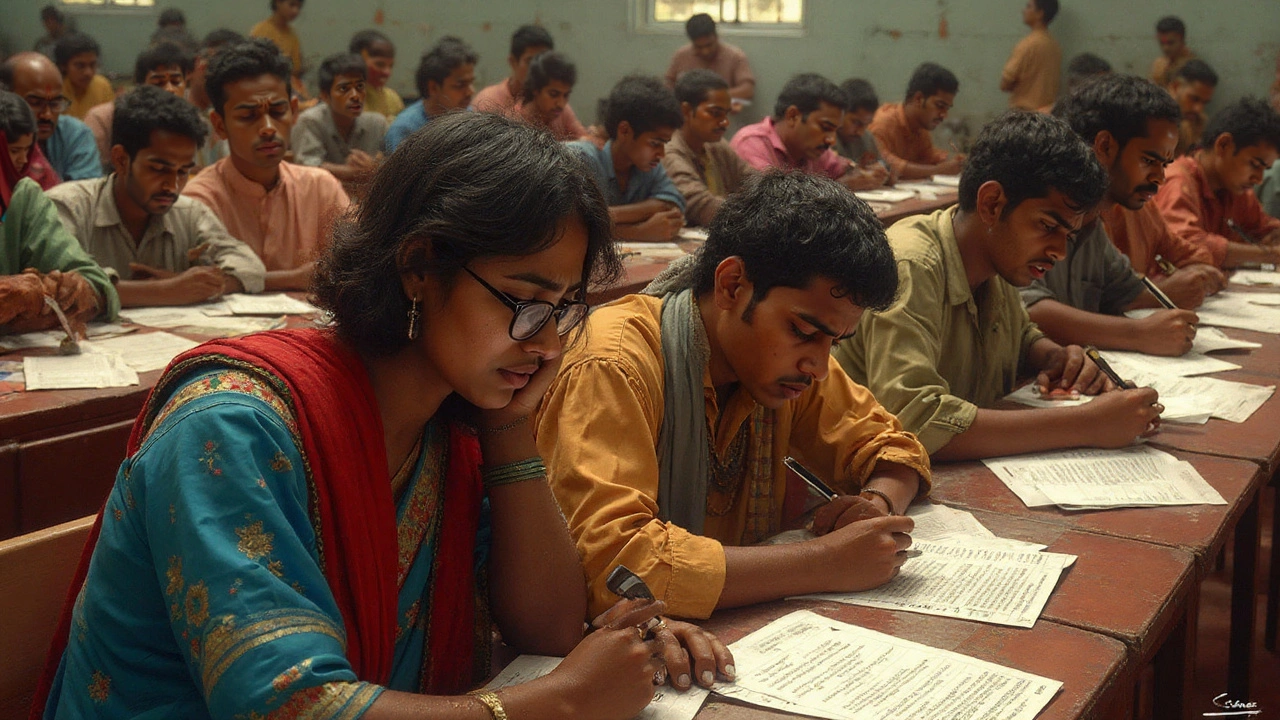Picture spending three brutal years in law school, surviving endless nights with nothing but caffeine and highlighters for company, and wrangling with casebooks thicker than your mattress. You finally toss your graduation cap in the air, thinking you've made it. But that’s just the start. The biggest beast of them all still lies ahead: passing the bar exam—and depending on where you live, this beast might be a dragon or just a grumpy cat. Law grads swap horror stories about the most savage states to become a lawyer, and if you’re dreaming about your legal future, you really want to know where things can get out of hand, where the odds are stacked high, and how you can actually survive.
What Makes a State the Hardest for Law Licensure?
Not all bar exams are born equal. Every state protects the front door to the legal profession in its own wild way, and a lot hinges on the rules, exam design, grading, and what’s expected before your exam day even arrives. Let’s break it down.
First up, passing score matters. In some states, the pass mark is significantly higher, meaning you can get a decent score elsewhere but still fail here. Take California, famous for its sky-high cut score (if a 1390 or 1440 doesn’t ring a bell, it soon will). New York isn’t far behind, with tough standards and fierce grading curves.
Then there’s the exam format. The Uniform Bar Exam (UBE) tries to make things easier by standardizing the rules across many states—but some, including California and Florida, march to their own drum. California’s three-day exam (until 2017, now two) squeezed the soul out of test-takers with its length and depth, including local law questions that haunt even well-prepared students. Louisiana’s famously oddball test is a nine-section marathon over three days and covers both civil and common law—making it especially nasty for out-of-staters.
Now add the application hoops. Several states demand more than a law degree and passing the exam. Think extra courses, pro bono work, or a character and fitness investigation that can make a DMV trip look like a spa day. Delaware wants you to apprentice for five months with an active local attorney before you’re even eligible for the bar.
Let’s not skip cost and timing. States like New York and California not only have expensive exams but also long wait times for results. Months of anxiety are standard, so plan for stress marathons, not sprints.
So if you’re wondering which state makes things hardest: It’s not only about numbers. Culture, system, and local quirks pile on unique challenges.
States That Take "Hardest Bar" Bragging Rights Seriously
There’s no nationwide scoreboard handed out each year, but there are plenty of ways to measure suffering. The top contenders have a blend of strict requirements, low pass rates, and legacies that haunt law school chat rooms everywhere.
California wears the crown and scepter for many. Until 2017, the state’s bar ran an epic three-day gauntlet (now trimmed to two, but not exactly a cakewalk). The pass rate here often dips below 50%, especially for first-time takers from out-of-state schools. The essay questions drill into California-specific law. Subjects appear with brutal unpredictability. And the infamous performance test, designed to mimic real lawyering on paper, is so detailed that even seasoned attorneys sweat.
Florida is another monster. Don’t let the sunshine fool you—the exam asks for lightning-quick essay writing and multiple-choice mastery, plus local law quirks on topics like Florida constitutional law and homegrown criminal codes. Examiner reports suggest that some topics, like state-specific property and procedure, show up so often that missing a question or two can tank your whole score.
New York makes things interesting with its massive size and huge crowd of takers. Although the UBE makes things consistent, New York still tacks on a local content test and a mandatory skills course. The cost stacks up, and the challenge isn’t only the material but keeping afloat in one of the US’s most competitive legal markets.
Louisiana deserves an honorable mention for making its bar exam uniquely tough for anyone not raised on civil law. If your law school didn’t drill you on family law in the French tradition, you’re in for a wild ride. Nine separate sections (no typo) and a blend of multiple-choice, essay, and code-specific analysis can finish off even the best-prepared JD.
Then there’s Delaware. It doesn’t have the lowest pass rate, but it’s shockingly hard for other reasons. The five-month clerkship (practical apprenticeship), required for all, weeds out the casual candidates. Plus, the state exam covers six essay questions (yes, six) covering Delaware law in nearly every important topic. They keep their legal community intimate, and the gate has plenty of locks.
Other tough states? South Dakota’s pass rate is low, but that’s due to the tiny pool rather than a monster exam. Virginia still requires suits and ties for its bar, which is not just an intimidation tactic—there’s a long and meatier-than-average essay test loaded with state-specific rules.
If you have your sights set on Alaska, Vermont, or New Hampshire, don’t relax. While they lack the sheer numbers, the exams are known to sneak up with grueling practical tasks and curveballs that demand precise, detailed answers about state-specific codes.

Inside the Numbers: Bar Exam Pass Rates and Hidden Hurdles
When people ask about the hardest state, they usually mean the lowest bar exam pass rate. Simple, right? But data always tells a slightly messier story.
California has seen pass rates dip as low as 34% for first-time takers in 2020, especially for graduates from out-of-state or non-ABA (American Bar Association) accredited schools. In a typical July sitting, you’ll see rates hovering between 40% and 50%. For context, the national average sits closer to 80% for the UBE (Uniform Bar Exam) states, though plenty are lower.
In Florida, the bar pass rate for July 2024 was about 58%—but if you break it down, Florida law school grads did much better than those trained elsewhere. So, familiarity with local laws (and maybe the humidity) helps.
New York, with a massive pool of nearly 10,000 annual candidates, maintains an average pass rate around 61%, but it jumps higher for in-state students. Out-of-state and international graduates find the going tougher, not just because of the material but also the logistics and pressure.
Delaware, with its infamously small group, posts a pass rate that often hovers at 55%. Some years, it’s dipped below 40%, making for a climate where every single wrong answer matters a lot more.
Louisiana’s stats vary each year, often ranging from 50% to 60%, but the sheer uniqueness of the code-based system throws a wrench in any direct comparison to other states. There are no “easy” bars, but Louisiana’s blend of civil and common law makes it a special test of endurance.
Beyond numbers, real hurdles include the mental battle. Sitting through two or three days of grueling exams shatters even confident students. Wait times for results (California and New York can take four months) pile on more stress. Some states, like Texas and Georgia, are known for their detailed character and fitness checks that can delay or derail an application for reasons not even related to your exam performance, like traffic tickets or paperwork lapses. In Delaware and Virginia, not having a local practice sponsor or misreading the dress code can get your application rejected before you even sit down.
Job competition is brutal, too. In states where bar pass rates are lower, you’re fighting for fewer positions. Many firms only hire those who passed the bar on the first try, making a retake another big obstacle. And cost? A single bar exam can cost more than a used car, once you add up fees, bar review courses, travel, and months of preparation where you may not be earning anything.
Tips, Survival Tricks, and Lessons from the Front Lines
If you want to give yourself a fighting chance, focus isn’t enough—you need a strategy geared for your state’s special quirks. Here’s what helps people actually make it through the hardest states (according to dozens of real bar veterans):
- Know your state’s weird rules inside and out. Even if you’re using a top-tier review course, look for add-ons covering Florida property law or California evidence nuances. Don’t skip local rules!
- Start early—and mean it. Most survivors recommend five months of prep for California, Florida, or Louisiana, even if the official programs suggest two or three. This is not the time to cram.
- Practice essays are non-negotiable. Reviewers who actually passed say writing one or even two essays a day builds the stamina and state-specific knowledge you’ll need, especially where essays form the test’s backbone.
- Find a mentor or recent passer. In Delaware, Texas, or Virginia, knowing someone who’s just made it through is worth its weight in gold—insider info gets you through the character and fitness rabbit holes, local rules, or even small exam day rituals like the right suit and tie.
- Simulated exams are key. Replicate nasty conditions—noise, stress, and all. The exam is more about handling pressure than showing off theoretical smarts.
- Don’t forget the paperwork. States like Virginia or Delaware will bounce your application over a technicality. Double-check every form and requirement—don’t blow months of work over a missed signature or document deadline.
- Accept you’ll hit the wall. It’s normal to question your sanity midway through bar prep. Build breaks and reward milestones into your study plan so burnout doesn’t sweep you under.
- Budget for surprises. Between lost wages, bar fees (often over $1,000), and cost of living in high-price states like New York or California, the bills pile up. Apply for scholarships, work freelance, or save before you graduate if you can.
- Consider starting in a friendlier state. If you just want to practice law, mobility options are growing. Some states recognize the UBE and allow for easier score transfer. It might take some ego-checking, but starting in a state with higher pass rates—and later waiving into your dream state—can be a smart route.
- Mental health isn’t optional. Scheduling therapy sessions or peer support circles isn’t just nice—it’s a survival move. The bar can break even the toughest, so plan to protect yourself.
Passing the toughest state bars isn’t about raw intelligence—it’s discipline, tenacity, and adapting to an unforgiving system. Candidates who obsess over details, prepare for curveballs, and pace themselves for a marathon end up on top. But don’t let horror stories scare you out of trying. Even in California and Delaware, thousands get through every year, and the badge of “toughest” is part of what makes those victories so sweet.





